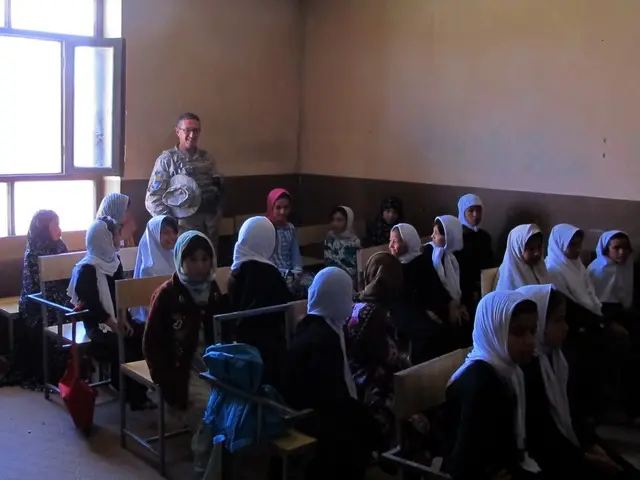Navigating Gender Identity: A Handbook for Nigerian Parents
================================================================
In today's world, understanding the complexities of gender identity is crucial for creating inclusive and accepting environments, especially for parents in Nigeria. This blog post aims to shed light on the concept of gender identity and provide strategies for Nigerian parents to navigate this issue with their children.
Gender identity refers to an individual's deeply held sense of being male, female, or another gender, which might not necessarily align with the sex assigned at birth. This can present numerous challenges for Nigerian parents, rooted in cultural expectations, traditional gender roles, and societal attitudes towards non-binary gender identities.
To address these challenges, education and support efforts often focus on creating safe, inclusive environments and engaging trusted community figures. One such approach involves engaging community and religious leaders to sensitively educate parents, helping to challenge harmful gender norms while respecting religious frameworks.
Culturally appropriate educational materials and workshops are another key method, providing parents with tools for dialogue and emotional support strategies. Local NGOs and advocacy groups, such as The Initiative For Equal Rights, offer counseling, legal advice, and peer support for families navigating gender identity issues.
Utilizing media and communication strategies, like tailored radio campaigns, community meetings, and social media, can gradually shift cultural perceptions by sharing stories that humanize gender-diverse experiences and promote empathy among parents.
Education aimed at decreasing gender bias and promoting parity in schools and families indirectly supports better understanding of gender identity by challenging rigid stereotypes and creating more gender-friendly environments.
Because of Nigeria’s legal environment and strong cultural conservatism, these educational efforts prioritize respect, confidentiality, and gradual attitudinal change, often avoiding direct confrontation with authorities and mainstream political discourse.
In addition to education, it is essential to provide unconditional love, acceptance, and support as a child explores their gender identity. Seeking professional guidance and connecting with support networks can play a significant role in navigating gender diversity.
Initiating conversations about gender identity is crucial to create a safe and accepting environment for all individuals. Fostering resilience and self-confidence in children is crucial when supporting gender-diverse children.
It's important to remember that gender identity is influenced by a combination of biological, social and cultural, and environmental factors. Children may exhibit early signs and expressions of gender identity exploration, such as playing with toys typically associated with their gender, expressing preferences for clothing, and insisting on being referred to by a different name or pronouns.
Non-binary individuals in Nigeria face considerable stigma due to the prevalent binary gender system. Nigerian parents fear that their child's non-binary gender identity will subject them to societal judgment, rejection, or even violence, which further complicates their journey.
Advocating for inclusive policies and education is vital to create a more accepting society. Parents may worry about how society will perceive their child's gender identity and the impact it will have on their future prospects, such as education, employment, and relationships.
In this communal society, the opinions and expectations of others hold significant weight. Nigerian parents play a pivotal role in shaping their children's understanding of gender, and understanding and acceptance are key in promoting the emotional well-being and happiness of individuals.
In conclusion, supporting Nigerian parents involves culturally sensitive community engagement, involvement of trusted leaders, accessible educational resources, local advocacy support, and wider gender equality education to nurture understanding of gender identity within familial and social contexts.
- It's essential to provide unconditional love, acceptance, and support as a child explores their gender identity, even as it may not align with societal expectations or the sex assigned at birth.
- One strategy for Nigerian parents to navigate gender identity issues is engaging community and religious leaders for sensitive education, challenging harmful gender norms while respecting religious frameworks.
- Education and support efforts should focus on creating safe, inclusive environments for children of all genders, and this can be achieved through culturally appropriate materials, workshops, and media campaigns.
- The Initiative For Equal Rights and other local NGOs and advocacy groups offer counseling, legal advice, and peer support for families navigating gender identity issues in Nigeria.
- Families should seek professional guidance to understand gender identity and provide emotional support for children as they explore their identities, helping to increase self-confidence and resilience.
- Fostering a gender-friendly home environment and challenging rigid stereotypes indirectly supports a better understanding of gender identity, promoting gender equity in schools and families.
- Advocating for inclusive policies and education is crucial to create a more accepting society, allowing children to succeed in areas such as education, employment, and relationships without fear of societal judgment or rejection.




